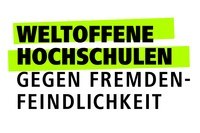Zum Profil
Policy Analysis and Modelling
This course consists of a lecture (2 SWS) and an exercise (2 SWS). It is held in English.
Organisational Issues
Kick-off lecture: 16th April 2025, 14 - 16 c.t.
Kick-off exercise: 23th April 2025, 16 - 18 c.t.
Target audience: Master of E-Government, Master DBM, Master Information Systems, Master Web (and Data) Science; Elective for Master of Mathematical Modelling of Complex Systems
Module description, general contents and workload: See MoMa 04WI2011
Information about examination and qualification for taking the examination will be shared at the kick-iff meeting
Registration to lecture and exercise via Klips
All materials and slides for the lecture and exercises will be provided via the OpenOlat e-learning platform
Objectives of the Module
Students, who participated successfully in the module, have acquired the following competencies:
Students can describe public policies and can distinguish these from other legal or operational policies of an institution.
They are knowledgeable about theories, methods and instruments of structured and systematic analysis and modelling of public policies.
They are able to perform systematic analysis of a policy domain using structured methods of policy analysis (including automatic information retrieval and natural language processing) in order to conceptualize a policy domain.
Students are knowledgeable about stakeholder identification and stakeholder participation in collaborative policy modelling.
Students can develop conceptual models of a respective public policy domain which is reasonably complex. Thereby, they apply the methods and principles of conceptualising a policy domain in a structured manner.
They know how to deal with complexity of social environments in public policies.
Students are able to derive formal simulation models (e.g. agent based models).
Overview of Contents
Introduction to policy modelling, including different theories and concepts to policy modelling and simulation
Methods and tools for policy analysis and modelling
Policy analysis using structured methods and tools of information retrieval and natural language processing
Concepts and methods for developing conceptual models
Concepts, methods and tools for social simulation
Methods and principles for stakeholder identification and participation
Cases of analysing and modelling public policies
Assessment of public policy development projects
References
Janssen, Marijn, Wimmer, Maria A., Deljoo, A. (Eds.) (2015): Policy Practice and Digital Science - Integrating Complex Systems, Social Simulation and Public Administration in Policy Research: Springer International Publishing.
Nigel Gilbert and Klaus G. Troitzsch (2005): Simulation for the Social Scientist, Maidenhead: Open University Press, 2nd edition.
Technical reports of CROSSROAD
Technical reports of OCOPOMO
Technical reports and knowledge base of eGovPoliNet





